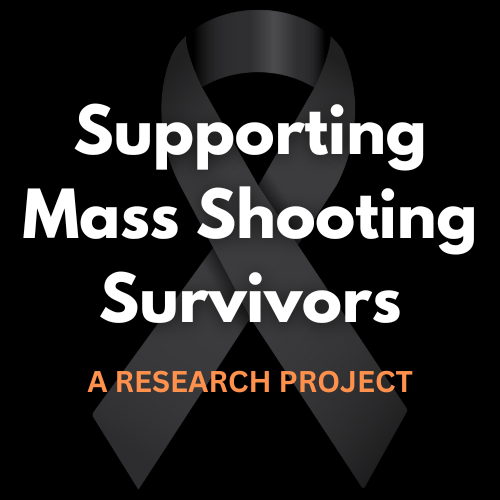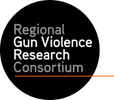FREQUENTLY ASKED QUESTIONS (FAQs)
Below is a list of frequently asked questions the research team has cultivated from this and similar projects with the corresponding information. Please click on the respective question to access the response. If you have a question that is not answered here, please contact the research team so that we can assist you with your inquiry.
No. The survey will not ask for any identifying information like name, social security number, driver’s license number, or any marker that can be directly linked to a particular individual. There are some questions about when and where the shooting you experienced took place, but this information will only be used for analytic purposes (e.g., grouping respondents by event, calculating time since event).
All results stemming from the study will be reported in aggregate (group) form either for the full sample of participants or based on different group-level indicators (e.g., community where the shooting occurred, how participants were impacted). Consequently, no individual responses will be shared publicly. Only members of the research team will have access to the initially-collected data, which will not include any identifying information for any respondent.
Your email address will not be asked for nor linked to your survey responses (even if requesting a link through the contact form), and we will not be tracking your IP address (a letter confirming this is available upon request). When you submit your responses to the online survey, your IP address is not stored in the results by Survey Monkey. Therefore, your responses are anonymous to the researchers of this study. Further, for your protection and privacy, your responses will be transmitted using SSL encryption (using RSA with 2048 bit key length based certificates and RSA 256 certificates).
Your survey answers will be stored initially within SurveyMonkey.com in a password protected electronic format. Data will later be downloaded and stored in a Dropbox account that is password protected with two-factor authentication on a password protected computer. No identifying information will be included in the file that could be used to link responses to a specific respondent.
No. You may exit the survey at any time without penalty or loss of benefits. You also may skip any question you do not wish to answer for any reason.
Broadly speaking, there are no direct benefits to participants beyond learning about the research process. The primary benefit gained from participating in this project is helping us to understand more about the needs of survivors in the aftermath of mass shootings, which can benefit the greater society at large.
That said, existing research suggests that in addition to the opportunity to contribute to the body of scientific knowledge, participation in studies like this can have added benefits including creating opportunities for you to help others, providing therapeutic and cathartic outlets to share your story, and empowering you by validating your experiences.
As researchers, we strive to mitigate any risks, either potential or real, that might be associated with participation in this research project. Understandably, you may find some of the questions to be sensitive or to cause emotional discomfort. Some of the questions ask about your experience on the day of the shooting and may be distressing to you as you think about your experiences. You are welcome to review a copy of the full survey before deciding whether you would like to participate.
Yes. All participants will receive a $15 gift card to Amazon. At the end of the survey, you will be directed to a separate form (via Google Forms) to submit your information to receive your gift card.
Your gift card will be delivered electronically within 10 days of taking the survey. Please note that there is a limit of one gift card per participant.
The results of this project will be shared through a variety of research products, including briefs, scholarly articles and notes, webinars, infographics, and fact sheets. The results will be shared using social media, email lists, and other dissemination strategies. Copies of all research products are available to participants upon request.
Should you experience emotional distress and need assistance locating mental health resources in your community, please contact Dr. Rebecca Cowan, counseling psychologist at Anchor Counseling & Wellness, at (757) 412-7816 or [email protected]. You also may seek assistance from a trauma therapist (the U.S. Department of Veteran’s Affairs website can help locate one: https://www.ptsd.va.gov/gethelp/find_therapist.asp). If you are in need of immediate or urgent assistance, please contact the national Disaster Distress Helpline by phone or text at 1-800-985-5990 to connect with a trained crisis counselor (https://www.samhsa.gov/find-help/disaster-distress-helpline).
If you have any questions about the project, you can contact the research team using one of the methods provided on the contact page. If you need to reach the project director, Dr. Jaclyn Schildkraut, directly, you may email her at [email protected].

